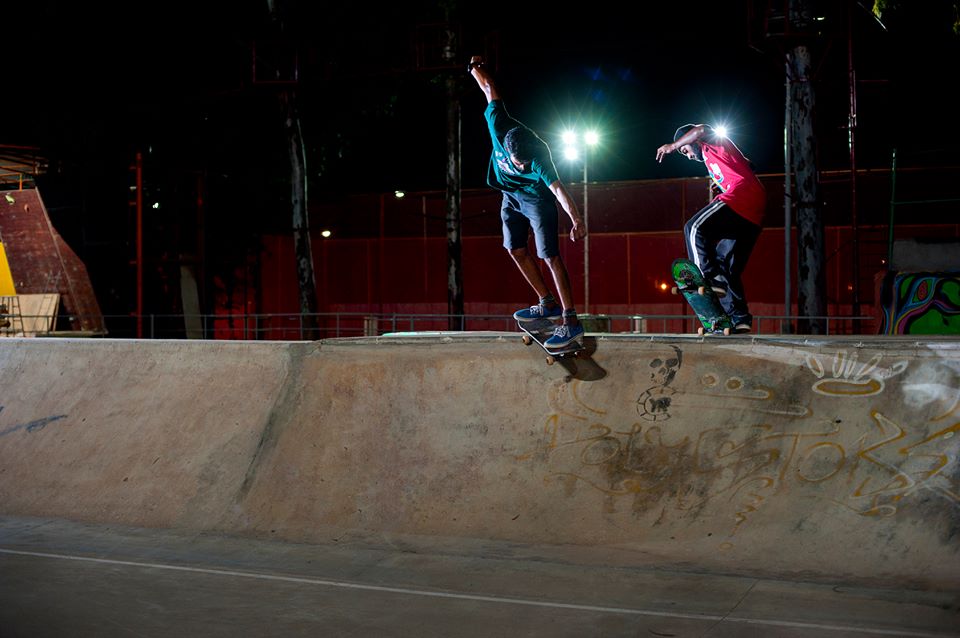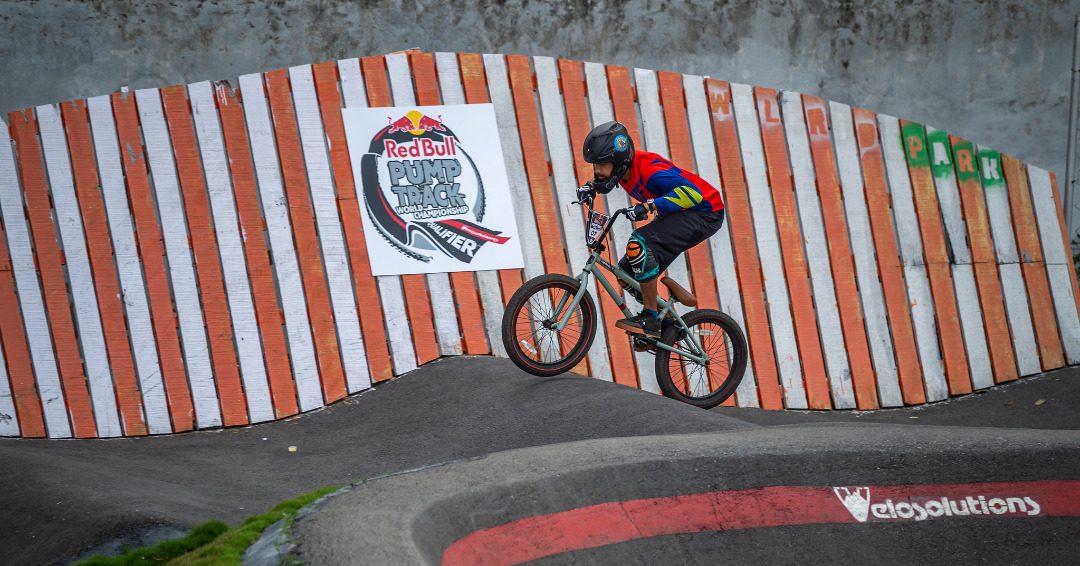(September 26, 2021) Sunday, 25th July was a watershed moment for Indian sports at the Olympics. The temperature was hovering around 35 degree Celsius at the Ariake Sports Park, Tokyo. Despite the heat and humidity, the atmosphere was exciting. The sports park was like a street with steps, ramps, rails, and slopes. Skateboarders were hitting the concrete and fighting out for the Olympic medal. Just a stone’s throw from where he grew up in Tokyo, 22-year-old Japanese skateboarder Yuto Horigome won the first-ever Olympic gold medal in the Skateboarding event which made its debut at the 2021 Tokyo Olympics.
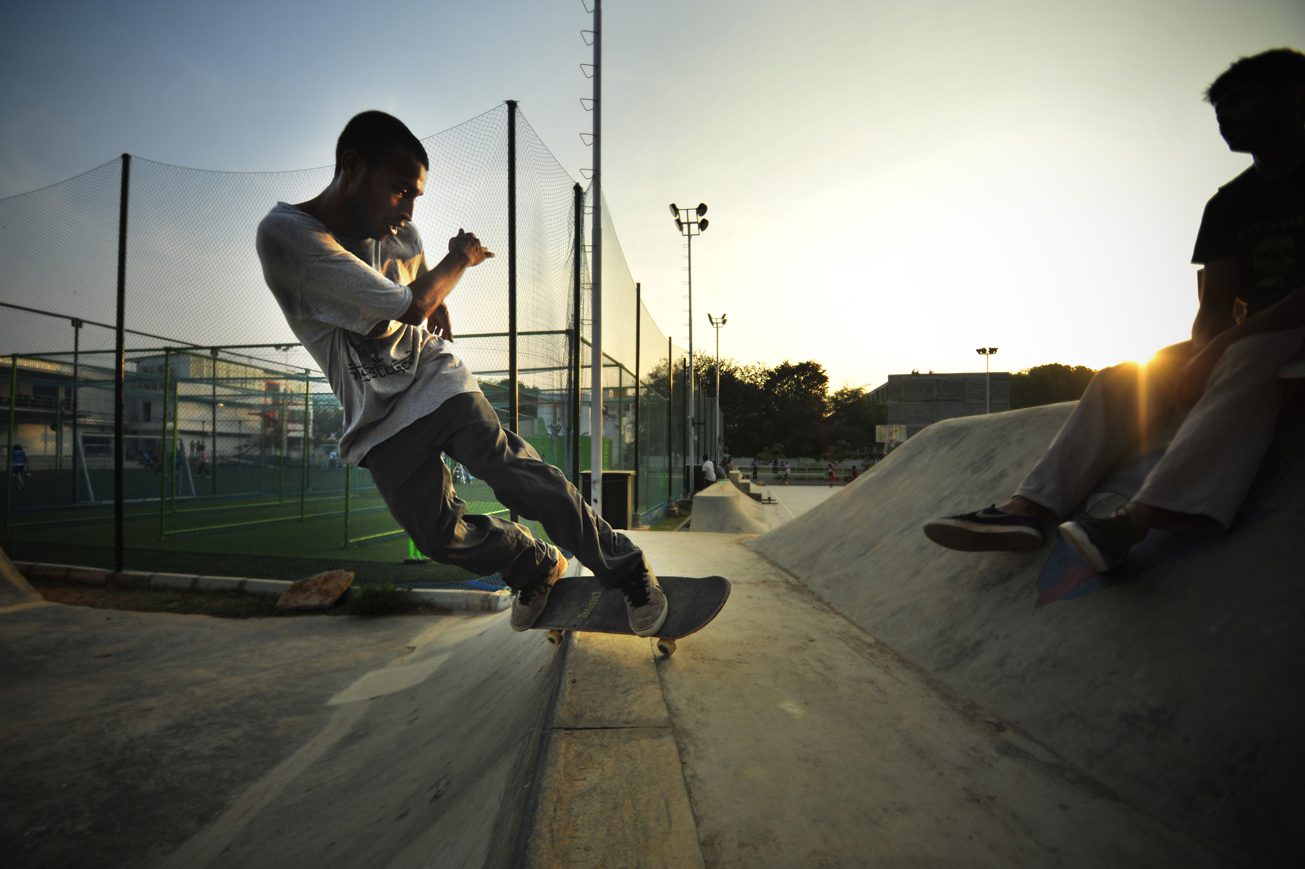
With its rebel roots, the sport is identified as a ‘counter-culture movement’ pursued mostly by outcasts who supposedly found freedom in it. The origins of skateboarding are said to be sometime in the 1950s. With the passage of time, the popularity of skateboarding grew exponentially in the US. Its popular youth demographic enticed mainstream sporting culture and mass media to incorporate skateboarding into an “extreme” category of sport, popularly called as “action sports”. Over a period of time the sport went mainstream to reach a level with its Olympic debut, echoing the adage ‘Rome wasn’t built in a day’ to an extent where the sport reached our cricket fanatic nation.
Skateboarding makes its way to India
Skateboarding has existed among Indian sports for quite some time, with the first skate park having been built in early 2000 in Goa by UK’s Pro Skater Nick Smith, one of the early evangelists of the Indian Skateboarding scene. Global Indian finds that over the past two decades it has become increasingly popular and led to 12 skate parks being built. While the metros of Bengaluru, Mumbai, Delhi, Hyderabad, and Pune lead the pack, surprisingly places like Jaipur, Indore, Gwalior, Vizag, Calicut, Sonepat, Maligaon (Assam), and Dhelpur (Punjab) have skate parks with kick-flip crazy youngsters pushing the envelope to help sustain the life of skateboarding.
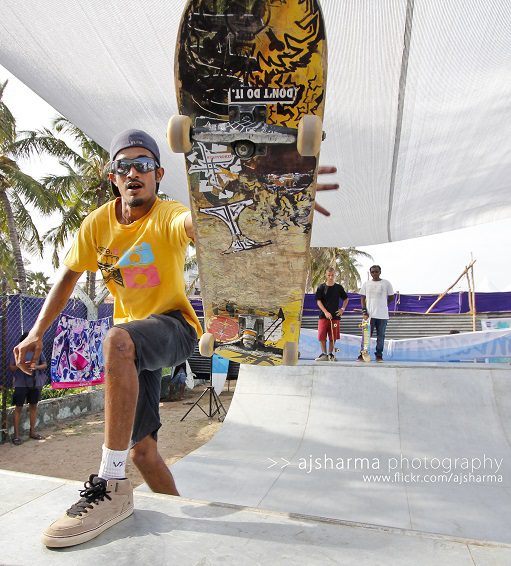
Holystoked is a skateboarding collective established in 2010 by Abhishek Shakebake and his friends to promote the sport. Abhishek says, “A bunch of us with a common interest in skateboarding were the earliest in India to promote the skateboarding culture by establishing a park in Bengaluru. Armed with a degree in law, I chose to do the unconventional – explore a career in the sport I fell in love with after a visit to Singapore. I convinced a couple of my buddies to join hands with me. A decade after establishing the sport, as I look back, the journey has been satisfying and fulfilling. We promote the sport, do fundraisers, organize events and build skate parks across the country. We built the Desert Dolphin Skatepark at Khempur, Rajasthan for the movie Skater Girl, the one at the Sabarmati riverfront, a few in residential communities, and undertook some Government projects too.”
Sports that unite
Indian sports have always led to the dismantling of stereotypes and prejudices. Using sports for social development and change has been an unconventional way of achieving greater happiness.
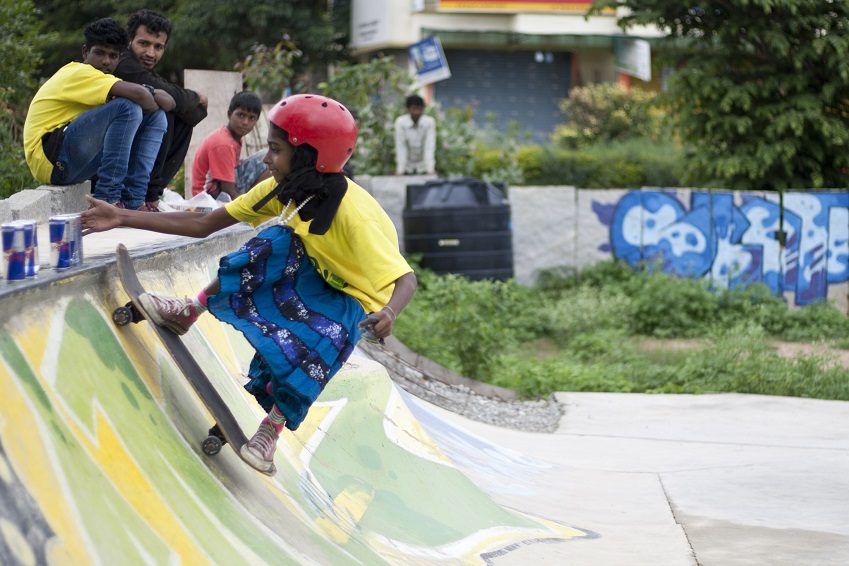
The Academy nominated documentary film Minding the Gap, shows a group of frustrated young men in an economically depressed town who skateboard to escape their life problems finding healing and solace in the sport of skateboarding. Back home the Netflix movie Skater Girl, produced by the yesteryear Bollywood villain Mac Mohan’s daughter, Manjari Makijany, chronicles the journey of a rural Indian teenage girl who discovers a life-changing passion for skateboarding – after a Western tourist builds a skate park in her village – but faces obstacles when she tries to chase her dream of competing. The movie was shot in a skate park built exclusively for the film in the remote Khempur village near Jaipur. However, after the completion of the shooting, it was left for the nearby village children to skate for free and is now managed by a foundation. This act of kindness led to four kids from the village representing Rajasthan in the National Skateboarding Championship as Indian sports in Chandigarh.
The creation of mega-events, such as the X Games by ESPN, stemmed directly from strategies to capitalize on the popularity of action sports made skateboarding fit into the mold of traditional sports viewership. 24-year-old Amit Gandhi from Mumbai was impressed when he saw the sport on television and wanted his friend, who apparently had a skateboard, to teach him. Finding it cool he ditched his education to pursue a career in the sport. For the past seven years, he has been building his own brand dealing in skateboard accessories and also patriating at a competitive level. He says, “My parents were initially not accommodative of my interest in the sport at the cost of education. I didn’t buckle under pressure and went ahead learning, training, and teaching too. I have participated in India’s biggest annual skateboarding competition, Jugaad which attracts participants not just from India, but Maldives and Nepal too. I aspire to become a Pro Skater and make a name for myself on the international scene.”
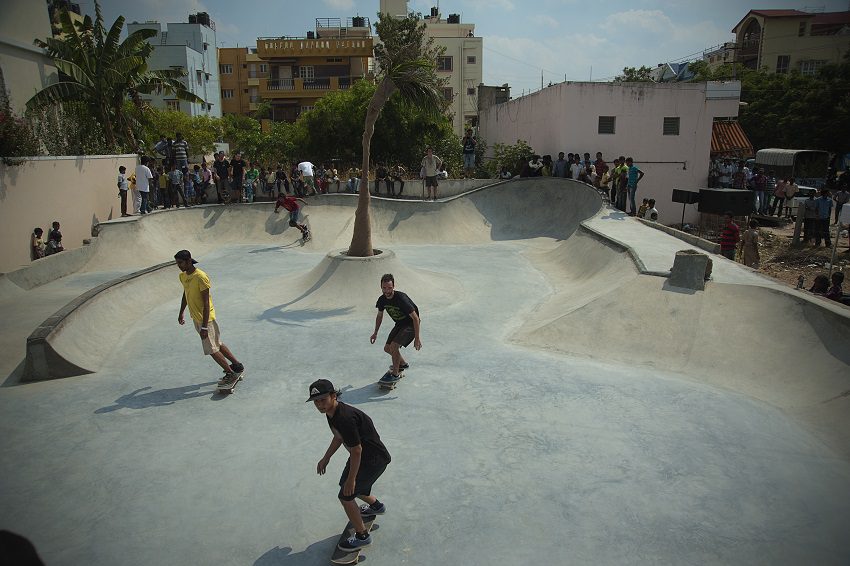
The long road ahead
With skateboarding included as Indian sports in the Olympics, Amit Subba of Dibrughar Assam is optimistic about the future of skateboarding in India. Amit was a part of Holystoked that started the skateboarding revolution in India. He says, “While there is a long road ahead for skateboarding in India but with more skate parks and a cohesive approach by skateboarders, government, and sponsors it will encourage new talent to take up skateboarding.”
After skateboarding and building skate parks for a decade in Bengaluru, Amit chose to move to his hometown in Assam. He now teaches the local village kids and is also exploring the possibility of setting up a skate park here. He adds, “With its growing recognition and increase in the skateboarders’ populace, skateboarding has garnered a special place in India. Earlier I knew all the skateboarders in the country. Today I see a new name, a new post on Instagram and Facebook. With more skate parks coming up, it is getting the attention it deserves.”
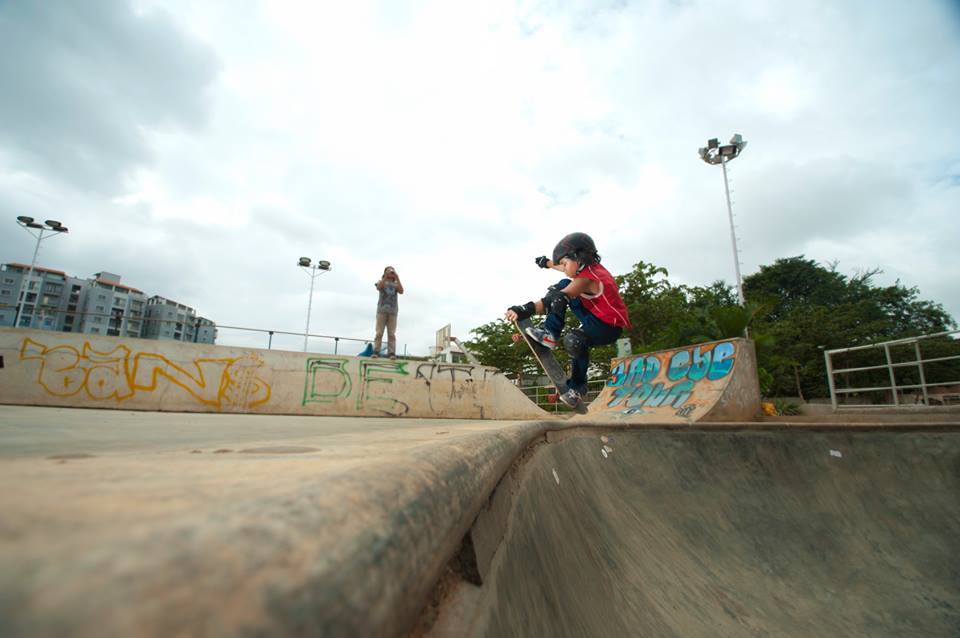
What was once perceived as a childhood pastime, an athletic pursuit, and a cool lifestyle, skateboarding is now moving the goal posts. It has experienced a discursive evolution from a childhood game to the new youth subculture. From societal shunning to its popularity growing, youth have access to an immersive experience and a more nuanced approach towards the sport with a cool vibe. With the growing digital culture and video sharing platforms, skateboarding is evolving exponentially, giving it a wider audience.
While the sport has been about personal discovery and pushing yourself to the limit, but where will skateboarding go from here? Wherever the skaters continue to take it.
